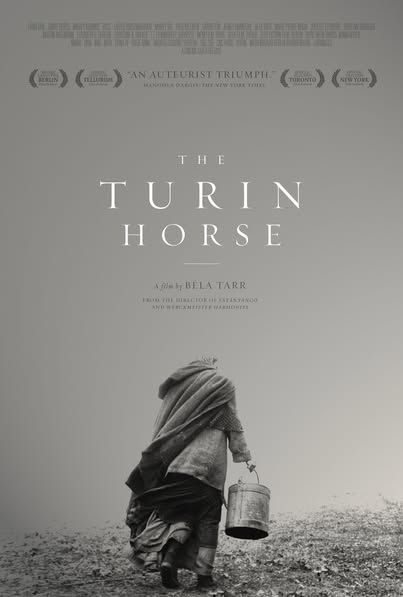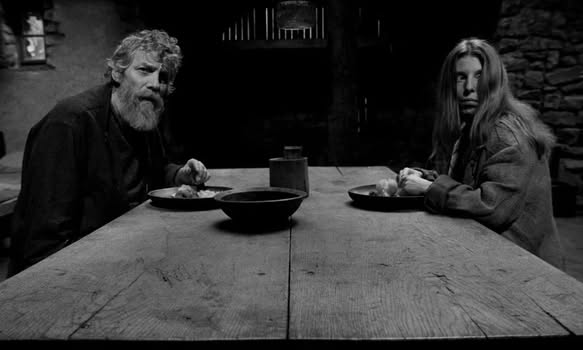The Turin Horse (2011)

A haunting and minimalist masterpiece by Hungarian director Béla Tarr, The Turin Horse is a profound meditation on human existence, endurance, and the inevitability of decline. The film opens with the infamous story of Friedrich Nietzsche’s collapse in Turin after witnessing a horse being whipped—a moment that serves as a symbolic prelude to the bleak narrative that follows.

Set in an isolated, desolate countryside, the story revolves around an aging farmer, his daughter, and their horse as they endure harsh, repetitive daily routines amidst an unrelenting storm. As their world gradually unravels, marked by the horse’s refusal to work and the encroaching collapse of their fragile existence, the film examines themes of despair, resilience, and humanity’s relationship with nature.

Shot in stark black-and-white and featuring long, meticulously crafted takes, The Turin Horse is a slow, hypnotic experience that challenges traditional storytelling, offering a profound exploration of the human condition. It’s a cinematic poem that lingers in the mind, leaving viewers with more questions than answers.











